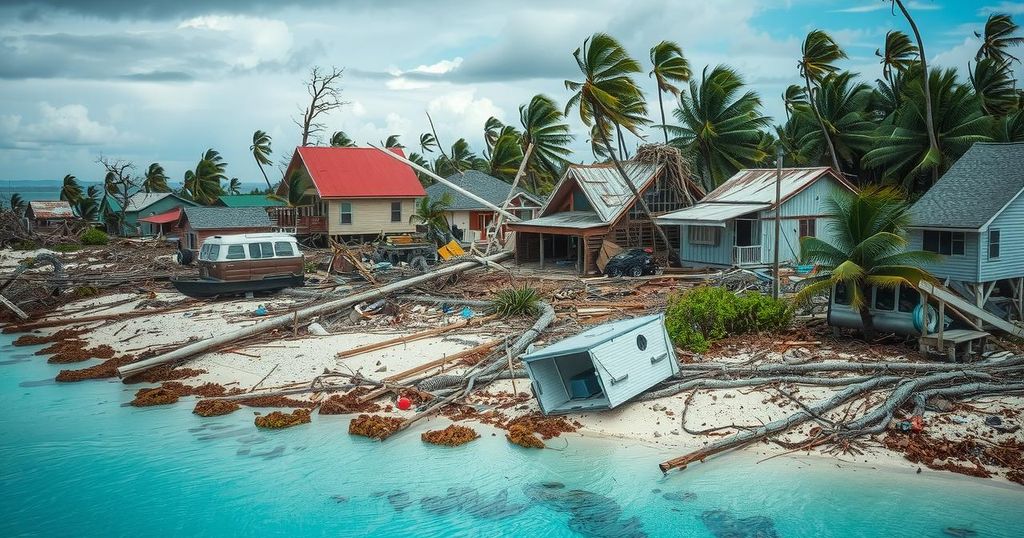Devastation of Cyclone Chido: Mayotte Faces Unprecedented Destruction

Cyclone Chido, a Category 4 storm, struck Mayotte in December, causing catastrophic damage and claiming at least 35 lives. The cyclone marked the worst storm in 90 years, with significant damage to infrastructure. The region is increasingly vulnerable to such extreme weather due to climate change, prompting urgent aid efforts from the international community.
In December, Cyclone Chido, a Category 4 storm with winds surpassing 136 miles per hour, devastated the French archipelago of Mayotte, marking the worst cyclone to hit the region in nearly a century. The storm resulted in significant destruction, claiming at least 35 lives and cutting off access to nearly two-thirds of the area due to extensive power outages and communication failures. Local officials, including Estelle Youssouffa, reported that the damage was reminiscent of an atomic bomb, obliterating entire neighborhoods and crucial infrastructures such as schools and hospitals.
This disaster follows a troubling trend of increased severe weather events affecting vulnerable regions. Mayotte, positioned between Madagascar and Mozambique, faces a heightened risk of extreme weather due to climate change. The French Development Agency has pointed out that global temperature increases exacerbate these vulnerabilities, raising concerns about future catastrophes in the archipelago and surrounding areas. Observations from climate experts emphasize that the current climate conditions produce more intense tropical cyclones than in the past, further threatening the region’s stability.
The archipelago of Mayotte is situated between Madagascar and Mozambique, and it is known for its susceptibility to extreme weather events, a fact highlighted by the devastating impact of Cyclone Chido. This cyclone occurs in the context of previous severe storms, such as Cyclones Idai and Kenneth, which struck Mozambique five years prior, resulting in extensive loss of life and property. According to various studies, the increase in global temperatures due to climate change has rendered areas like Mayotte increasingly vulnerable to such natural disasters, as the local environment experiences a proliferation of warmer and wetter conditions that favor the formation of powerful storms.
In summary, Cyclone Chido has inflicted unprecedented damage upon Mayotte, illustrating the dire consequences of extreme weather exacerbated by climate change. The immediate humanitarian response from the European Commission and other assisting nations is vital in addressing the urgent needs of affected communities. The overarching concern remains that without significant changes to energy practices and proactive climate adaptation strategies, regions like Mayotte will continue to face devastating impacts from future extreme weather events, underlining the importance of transitioning to renewable energy sources.
Original Source: www.thecooldown.com






